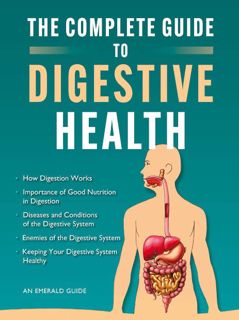
Improving Digestive Health: A Comprehensive Guide
Digestive health plays a critical role in overall well-being, affecting everything from nutrient absorption to immune function. A healthy digestive system ensures that your body gets the nutrients it needs to function properly and keeps your energy levels stable. Here are some effective strategies to improve your digestive health:
## 1. Eat a Balanced Diet
### Prioritize Fiber-Rich Foods
Fiber is essential for good digestion. It helps to keep food moving through the digestive tract and can prevent constipation. Include a variety of high-fiber foods such as:
- *Fruits*: Apples, bananas, berries, pears
- *Vegetables*: Carrots, broccoli, Brussels sprouts
- *Whole Grains*: Brown rice, oats, quinoa, whole wheat
- *Legumes*: Beans, lentils, chickpeas
Incorporate Probiotics and Prebiotics
Probiotics are beneficial bacteria that help maintain a healthy gut flora, while prebiotics are types of fiber that feed these bacteria. Foods rich in probiotics include:
- *Yogurt*
- *Kefir*
- *Sauerkraut*
- *Kimchi*
For prebiotics, focus on:
- *Garlic*
- *Onions*
- *Leeks*
- *Asparagus*
Limit Processed Foods and Sugar
Processed foods and high sugar intake can disrupt the balance of bacteria in your gut and lead to digestive problems. Aim to eat whole, unprocessed foods as much as possible.
## 2. Stay Hydrated
Water is crucial for digestion. It helps dissolve fats and soluble fiber, allowing these substances to pass through more easily. Aim for at least eight glasses of water a day, and consider drinking herbal teas like ginger or peppermint, which can soothe the digestive system.
## 3. Manage Stress
Stress can significantly impact digestive health, leading to issues like irritable bowel syndrome (IBS) and ulcers. Techniques to reduce stress include:
- *Exercise*: Regular physical activity can help reduce stress and stimulate normal intestinal contractions.
- *Meditation and Deep Breathing*: Practices that promote relaxation can alleviate digestive discomfort.
- *Adequate Sleep*: Aim for 7-8 hours of sleep per night to help manage stress levels.
## 4. Eat Mindfully
Chew Your Food Thoroughly
Chewing food thoroughly breaks it down into smaller pieces, making it easier for your digestive system to process. It also stimulates saliva production, which contains enzymes that begin the digestion process.
Eat at Regular Intervals
Eating at consistent times each day can help regulate your digestive system. Avoid skipping meals, and consider smaller, more frequent meals if large meals cause discomfort.
Avoid Eating Late at Night
Eating late at night can lead to indigestion and disrupted sleep. Try to have your last meal at least 2-3 hours before bedtime.
## 5. Exercise Regularly
Regular exercise helps keep food moving through your digestive system, reducing the risk of constipation. Activities like walking, swimming, and yoga are particularly beneficial for digestive health.
## 6. Avoid Bad Habits
Limit Alcohol and Caffeine
Both alcohol and caffeine can irritate the stomach lining and lead to digestive issues. Limit your intake and choose healthier alternatives when possible.
Quit Smoking
Smoking negatively affects the digestive system and can increase the risk of conditions like acid reflux and stomach ulcers. Quitting smoking can improve your overall digestive health.
## 7. Consider Digestive Enzymes and Supplements
Digestive Enzymes
If your body struggles to break down certain foods, digestive enzyme supplements can help. These are particularly useful for individuals with conditions like lactose intolerance or pancreatic insufficiency.
Fiber Supplements
If you find it challenging to get enough fiber through your diet, fiber supplements like psyllium husk can help maintain regular bowel movements.
Probiotics
In addition to probiotic-rich foods, supplements can help restore balance to your gut flora, particularly after taking antibiotics.
## 8. Pay Attention to Food Intolerances
Identify and eliminate foods that cause digestive discomfort. Common culprits include dairy, gluten, and certain FODMAPs (fermentable oligo-, di-, mono-saccharides, and polyols).
Keep a Food Diary
Tracking what you eat and how you feel can help identify patterns and pinpoint foods that may be causing issues.
Consult a Healthcare Professional
A dietitian or gastroenterologist can provide guidance and testing for food intolerances or other digestive conditions.
## 9. Herbal Remedies
Certain herbs have been traditionally used to support digestive health:
- *Ginger*: Known for its anti-nausea properties and ability to stimulate digestion.
- *Peppermint*: Can help alleviate symptoms of IBS and reduce bloating.
- *Chamomile*: May soothe the digestive tract and reduce inflammation.
## 10. Regular Check-ups
Regular check-ups with your healthcare provider can help catch potential digestive issues early and keep your digestive system functioning optimally.
Routine Screenings
Screenings for conditions like colorectal cancer are important, particularly as you age or if you have a family history of digestive diseases.
Discuss Symptoms
If you experience persistent digestive symptoms like heartburn, bloating, constipation, or diarrhea, discuss them with your doctor to determine the underlying cause and appropriate treatment.
Conclusion
Maintaining digestive health is integral to overall well-being. By adopting a balanced diet, staying hydrated, managing stress, and making mindful lifestyle choices, you can support your digestive system and improve your quality of life. Remember, small changes can make a big difference, so start incorporating these strategies today for better digestive health tomorrow.
Follow Healthcare to stay updated on their latest posts!
0 comments
Be the first to comment!
This post is waiting for your feedback.
Share your thoughts and join the conversation.
